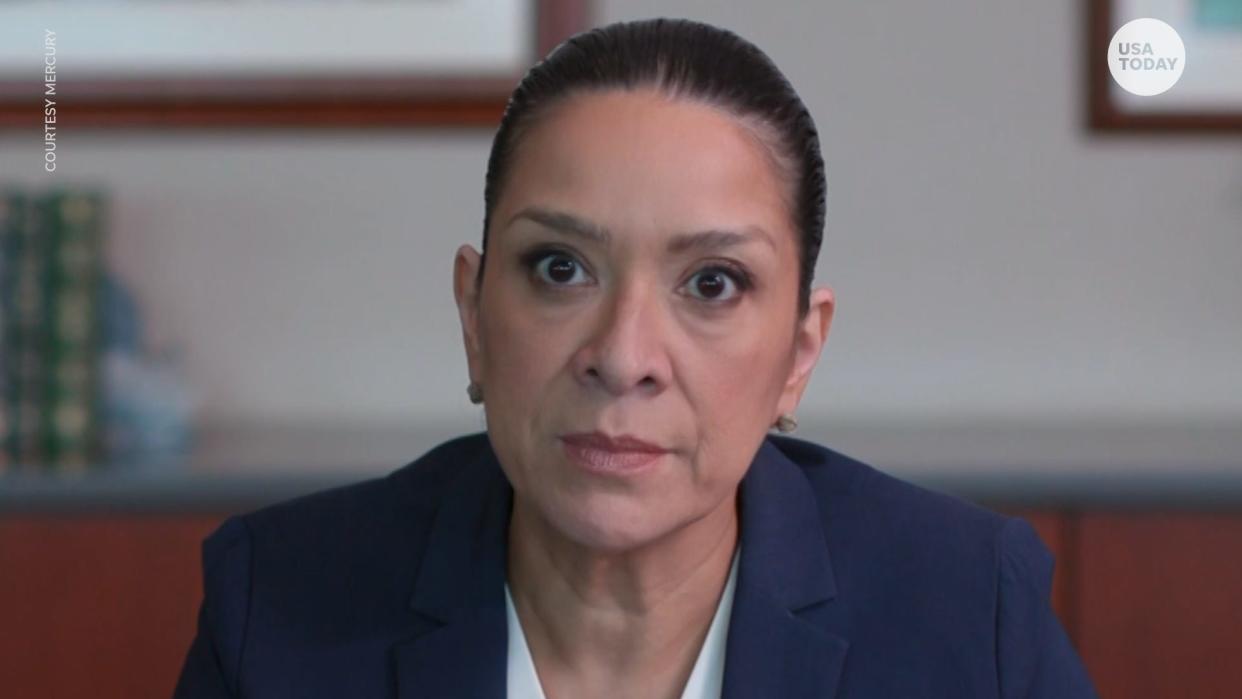US Marshals lack staff, threat detection capabilities to protect federal judiciary

- Oops!Something went wrong.Please try again later.
The U.S. Marshals Service lacks staffing and threat detection capabilities to adequately protect the federal judiciary as threats against jurists have escalated, an internal Justice Department report concluded Wednesday.
Among a number of alarming findings outlined in the 32-page report, Justice Department Inspector General Michael Horowitz found that the agency was operating at a 24% staffing shortage and needed at least 1,200 additional deputy marshals to meet its obligations.
"Resource limitations and competing agency budget and staffing priorities have impeded the USMS's ability to provide the level of protective services that it has determined is required given the increasing number of threats directed at the judiciary," the report said. "Further, the USMS does not have adequate proactive threat detection capabilities to monitor the current threat landscape, including in online and social media settings."

In addition, updated home security equipment is not being offered to judges, and other judges are not participating in the Marshals Service's home security program, known as the Home Intrusion Detection System. And some of the judges who have the systems do not regularly activate them.
The agency's manager of the home security program was "unable to explain" why some of the systems were not regularly armed.
"However, (the manager) did speculate that judges opt out of the HIDS program because they prefer to pay for their own security system, believe they have better alternatives available to them, or simply are not satisfied with what the HIDS system has to offer," the report found.
The service has a far-reaching security responsibility for protecting more than 2,700 sitting judges, the deputy attorney general and about 30,000 federal prosecutors and court officials across the country.
Related: Federal courts look to expand security following Capitol riot, other threats to judges
A year ago, a judge's family was targeted
The report comes nearly a year after a shooting at the New Jersey home of a federal judge left her son dead and husband wounded.
Judge Esther Salas later decried the vulnerability of the judiciary, saying her colleagues on the bench should not have to "live in fear for our lives."
Related: Report: Federal judge says assailant who attacked her family had dossier on Justice Sonia Sotomayor
A self-proclaimed anti-feminist attorney, Roy Den Hollander, 72, posed as a delivery person before opening fire at the judge's home. Hollander later shot and killed himself.
"My family has experienced a pain that no one should ever have to endure," Salas said shortly after the attack. "And I am here asking everyone to help me ensure that no one ever has to experience this kind of pain. ... We may not be able to stop something like this from happening again, but we can make it hard for those who target us to track us down."
The severe security weaknesses outlined in the inspector general's report are "particularly concerning" in light of an 89% increase in reported security-related incidents involving "inappropriate communications and threats" made to those the agency protects between 2016 and 2019.
In a written response, Marshals Service Assistant Director Heather Walker acknowledged the inspector general's findings and said the agency was moving to address them.
According to Walker's memorandum, the agency's Judicial Security Division had reorganized its protective intelligence function, creating a specific Threat Investigations Unit.
"The United States Marshals Service will initiate a Mission Center concept similar to those at the Department of Homeland Security and the Federal Bureau of Investigation," the memo said. The actions and expansion of the protective intelligence unit "will lead to the USMS achieving desired threat identification, assessment, and mitigation capabilities."
In a separate statement, the agency said that it takes judicial security "very seriously."
"Ensuring that the judicial process operates independently and free from harm or intimidation is paramount to the rule of law and the reduction of violent crime," the agency said.
This article originally appeared on USA TODAY: US Marshals have alarming gaps in judicial security, DOJ report finds

